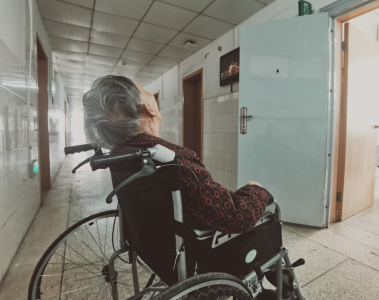Is your healthcare at risk? Millions could lose coverage if Medicaid cuts become law
- Replies 0
Sweeping changes are quietly making their way through the US, and they could affect more than just the headlines.
A newly passed measure in the Senate has stirred growing concern—especially for those who rely on healthcare support, live in underserved areas, or are nearing retirement.
The changes are technical, the implications are vast, and for millions, the stakes couldn’t be higher.
While much of the focus is on political wrangling, the real story lies in how this could transform access to care for everyday Americans.
After a marathon overnight session, the Senate narrowly passed a massive spending bill—by just one vote, 51-50. But before you breathe a sigh of relief (or frustration), know that the bill still faces a tough road in the House of Representatives, where even some Republicans are voicing concerns.
At the heart of the controversy: more than $1 trillion in proposed cuts to Medicaid, the joint federal-state program that provides health insurance to low-income Americans, people with disabilities, and many older adults.

Let’s put some faces to these numbers. Medicaid isn’t just a line item in the federal budget—it’s a lifeline for about 72 million Americans, or roughly one in five people in the US. It covers:
One of the most alarming ripple effects of these Medicaid cuts is the threat to rural hospitals. Many of these facilities already operate on razor-thin margins and rely heavily on Medicaid funding to keep their doors open.
If the proposed cuts go through, experts warn that we could see a wave of rural hospital closures—leaving entire communities without nearby emergency care, maternity wards, or even basic medical services.
Jennifer Mensik Kennedy, president of the American Nurses Association, put it bluntly: “You’re going to see closures of rural hospitals that are the backbone of their community and were already struggling financially. You’re going to see half a million job losses.”
Imagine having to drive 40 miles to deliver a baby or waiting an hour for an ambulance during a heart attack. For many rural Americans, that could become the new reality.
A major part of the bill’s Medicaid savings comes from imposing strict new work requirements. Adults aged 19 to 64—unless they’re disabled or caring for young children—would need to work, volunteer, or attend school for at least 80 hours a month to keep their coverage.
On paper, it sounds reasonable. In practice, it’s a different story.
Older adults, especially those in their 50s and early 60s, often face barriers to employment: health issues, age discrimination, or caregiving responsibilities.
Seasonal workers and people in rural areas may struggle to find steady work year-round. According to a UC Berkeley Labor Center analysis, these requirements could be “an especially draconian barrier to older adults,” leading to coverage losses for some of the most vulnerable.
AARP, the nation’s largest advocacy group for older Americans, is sounding the alarm. They warn that people who lose Medicaid due to work requirements could also be barred from getting help to buy insurance through the Affordable Care Act (ACA) Marketplaces.
That means a “coverage cliff” for folks nearing retirement or working part-time—leaving them with no affordable options at all.
Read also: Could changes to Medicaid funding put your local hospital in danger?
Another big chunk of the proposed Medicaid cuts comes from capping and reducing the taxes that states can levy on hospitals and other medical providers.
These taxes help fund state Medicaid programs, with the federal government matching a portion. Limiting them could strip away a critical funding stream, especially for rural hospitals.
The National Rural Health Association estimates that Medicaid funding for rural hospitals could drop by more than 20% in over half the states.
Even with a $25 billion fund added to help rural hospitals, experts say it’s 'putting a bucket of water on the house fire'—not nearly enough to offset the damage.
Read also: Taxpayers stand to save $30 billion with Medicaid reform
Tucked into the bill is a provision called the ORPHAN Cures Act, which would exempt more rare-disease drugs from Medicare price negotiations.
Supporters say this will spur innovation for rare conditions, but critics argue it’s a $5 billion giveaway to the pharmaceutical industry and a step backward in the fight to lower drug prices for everyone.
Merith Basey, executive director of Patients For Affordable Drugs Now, didn’t mince words: “Pharma lobbyists will stop at nothing to maintain industry profits, and when a majority of the Senate caves to their interests, it’s a reminder to Americans why they’re paying the highest drug prices in the world. Simply put: it’s because Congress allows it.”
Read next: You won’t believe what happened to seniors in wheelchairs at a Medicaid protest—Capitol Police involved

Have you or someone you know been affected by Medicaid changes in the past? Are you worried about the future of your local hospital? Do you have questions about how these proposals could impact your coverage or your community?
A newly passed measure in the Senate has stirred growing concern—especially for those who rely on healthcare support, live in underserved areas, or are nearing retirement.
The changes are technical, the implications are vast, and for millions, the stakes couldn’t be higher.
While much of the focus is on political wrangling, the real story lies in how this could transform access to care for everyday Americans.
After a marathon overnight session, the Senate narrowly passed a massive spending bill—by just one vote, 51-50. But before you breathe a sigh of relief (or frustration), know that the bill still faces a tough road in the House of Representatives, where even some Republicans are voicing concerns.
At the heart of the controversy: more than $1 trillion in proposed cuts to Medicaid, the joint federal-state program that provides health insurance to low-income Americans, people with disabilities, and many older adults.

According to the nonpartisan Congressional Budget Office (CBO), these cuts could leave nearly 12 million people uninsured over the next decade. Image source: Harry Cao / Unsplash
Let’s put some faces to these numbers. Medicaid isn’t just a line item in the federal budget—it’s a lifeline for about 72 million Americans, or roughly one in five people in the US. It covers:
- The majority of nursing home residents
- Around 40% of all births in the country
- Millions of children, people with disabilities, and low-income seniors
One of the most alarming ripple effects of these Medicaid cuts is the threat to rural hospitals. Many of these facilities already operate on razor-thin margins and rely heavily on Medicaid funding to keep their doors open.
If the proposed cuts go through, experts warn that we could see a wave of rural hospital closures—leaving entire communities without nearby emergency care, maternity wards, or even basic medical services.
Jennifer Mensik Kennedy, president of the American Nurses Association, put it bluntly: “You’re going to see closures of rural hospitals that are the backbone of their community and were already struggling financially. You’re going to see half a million job losses.”
Imagine having to drive 40 miles to deliver a baby or waiting an hour for an ambulance during a heart attack. For many rural Americans, that could become the new reality.
A major part of the bill’s Medicaid savings comes from imposing strict new work requirements. Adults aged 19 to 64—unless they’re disabled or caring for young children—would need to work, volunteer, or attend school for at least 80 hours a month to keep their coverage.
On paper, it sounds reasonable. In practice, it’s a different story.
Older adults, especially those in their 50s and early 60s, often face barriers to employment: health issues, age discrimination, or caregiving responsibilities.
Seasonal workers and people in rural areas may struggle to find steady work year-round. According to a UC Berkeley Labor Center analysis, these requirements could be “an especially draconian barrier to older adults,” leading to coverage losses for some of the most vulnerable.
AARP, the nation’s largest advocacy group for older Americans, is sounding the alarm. They warn that people who lose Medicaid due to work requirements could also be barred from getting help to buy insurance through the Affordable Care Act (ACA) Marketplaces.
That means a “coverage cliff” for folks nearing retirement or working part-time—leaving them with no affordable options at all.
Read also: Could changes to Medicaid funding put your local hospital in danger?
Another big chunk of the proposed Medicaid cuts comes from capping and reducing the taxes that states can levy on hospitals and other medical providers.
These taxes help fund state Medicaid programs, with the federal government matching a portion. Limiting them could strip away a critical funding stream, especially for rural hospitals.
The National Rural Health Association estimates that Medicaid funding for rural hospitals could drop by more than 20% in over half the states.
Even with a $25 billion fund added to help rural hospitals, experts say it’s 'putting a bucket of water on the house fire'—not nearly enough to offset the damage.
Read also: Taxpayers stand to save $30 billion with Medicaid reform
Tucked into the bill is a provision called the ORPHAN Cures Act, which would exempt more rare-disease drugs from Medicare price negotiations.
Supporters say this will spur innovation for rare conditions, but critics argue it’s a $5 billion giveaway to the pharmaceutical industry and a step backward in the fight to lower drug prices for everyone.
Merith Basey, executive director of Patients For Affordable Drugs Now, didn’t mince words: “Pharma lobbyists will stop at nothing to maintain industry profits, and when a majority of the Senate caves to their interests, it’s a reminder to Americans why they’re paying the highest drug prices in the world. Simply put: it’s because Congress allows it.”
Read next: You won’t believe what happened to seniors in wheelchairs at a Medicaid protest—Capitol Police involved
Key Takeaways
- The proposed “big beautiful bill” would slash over $1 trillion from US health care spending—mainly from Medicaid—potentially leaving up to 17 million Americans without health insurance and threatening the closure of rural hospitals heavily reliant on federal funding.
- New strict national work requirements for Medicaid recipients are planned to save $325 billion, but experts warn these will disproportionately strip older adults, rural workers, and vulnerable populations of essential health coverage.
- Further cuts would come from capping provider taxes and state-directed payments, putting critical rural hospitals at risk of closure and threatening health services and jobs in communities already suffering from limited access to care.
- A provision in the bill, the ORPHAN Cures Act, would exempt more drugs from Medicare price negotiations, handing a win to pharmaceutical companies but drawing criticism from advocates who say it undermines efforts to lower drug costs for patients.






